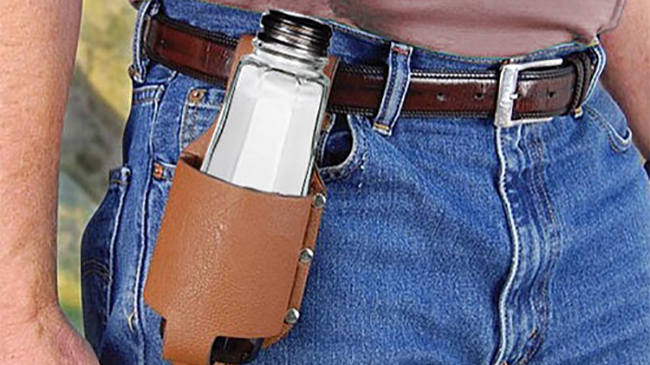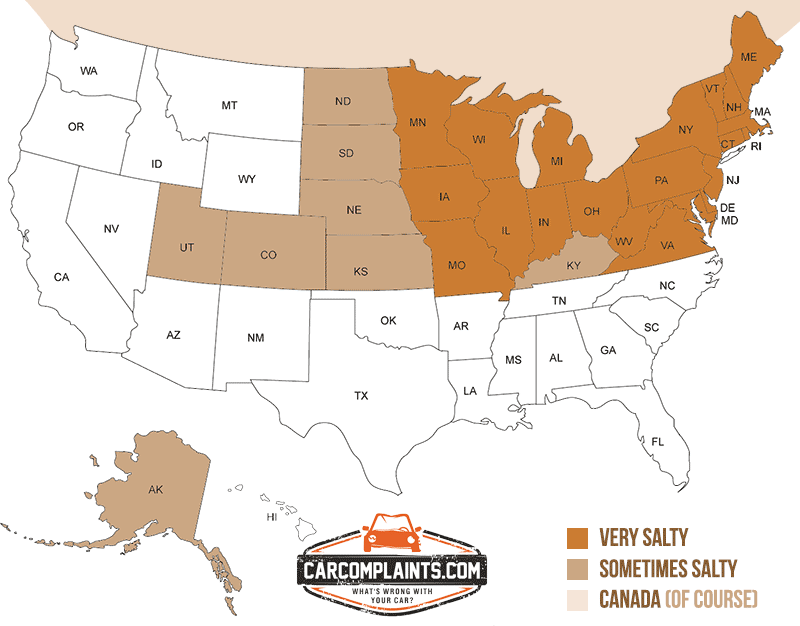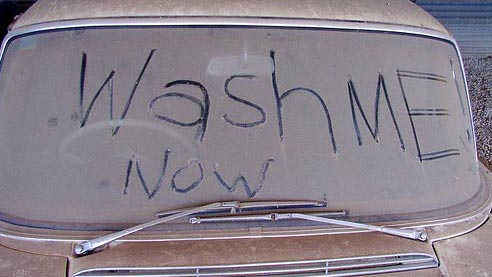The Salt Belt States
Road salt. It's great for melting ice, and awful for just about everything else.

Cold-weather states that have to use a heavy dose of salt in the winter are sometimes referred to as the “salt belt.” Every now and again you’ll see a recall or investigation that is limited to this this specific region.
Understandably, the “salt belt” is also known as the “rust belt.”
“The biggest threat salt poses to a vehicle is rust, which is accelerated by repeated exposure to salt. Rust on certain parts of a car can create a slew of problems ranging from hydraulic brake system leaks to subframe damage.” — Accuweather.com
The states in this belt are, as you’d expect, found in New England, the Mid-Atlantic and the upper Midwest. The belt, however, sometimes grows or shrinks depending on the recall.
The “Salt Belt” 21
Here are the 21 states (plus one district) that you’ll almost always see listed as part of the “salt belt”:
Connecticut, Delaware, Illinois, Indiana, Iowa, Maine, Maryland, Massachusetts, Michigan, Minnesota, Missouri, New Hampshire, New Jersey, New York, Ohio, Pennsylvania, Rhode Island, Vermont, Virginia, West Virginia, Wisconsin and Washington D.C.

Depending on what models are being recalled, Canada can be included too because, well … it’s Canada and it snows a lot there.
“Why isn’t Alaska on the primary [salt belt] list? Maybe Alaskans don’t like road salt. Maybe they just ride around on polar bears all winter. I’ve never been, so I can’t say for sure.”
Other states such as Alaska, Colorado, Kansas, Kentucky, Nebraska, North Dakota, South Dakota, Utah are also sometimes considered part of the “salt belt.”
Why isn’t Alaska, our northernmost and one of the snowiest states, on the primary list? I’m not really sure. Maybe Alaskans don’t like road salt. Maybe they just ride around on polar bears all winter. I’ve never been, so I can’t say for sure.
The Reason For All This Salt
Salt is used on roads because it helps lower the melting point of ice, to a point. A 10% salt solution will lower water’s freezing point from 32 F (0 C) to 20 F (–6 C). But once it starts to get colder things get a little science-y and salt’s effectiveness starts to fade.
How Salt Affects Your Car
Salt has a nasty habit of finding places where it can do the most damage. Take that small nick in the paint of your car that came courtesy of a rogue shopping cart. Salt will nestle in past the paint, attach itself top your car’s exposed metal frame and eat that sucker dry. Salt will also eat through:
- Your paint, if you haven’t properly waxed
- Your struts and shocks
- Fuel tanks and other components if there are bad welds
- Brake lines and other good times
To combat salt corrosive awfulness, manufacturers will sometimes treat your car with anti-rust sprays, zinc-rich galvanizing compounds and rubberized underbody coatings that work … for a while. Sometimes you’ll even receive an anti-corrosion warranty with a new car that lasts a couple years.
Preventing Rust and Corrosion on Your Car
Your best bet is to wax your car before winter and then regularly wash it, when you can, throughout the cold months.

Some say that salt’s corrosive properties slow down once the salt dries into a crusty white dust all over your car. Those people are very wrong and you should never take advice from them again.
“Go through a car wash that has an under-spray,” says Manager of Vehicle Services at Firestone Complete AutoCare, Joe Roger “That will try to reduce the chances that all that salt and salt water will get on the vehicle and start to corrode.”
Salt Belt News
-
Land Rover Recalls Range Rovers Over Suspension Dangers Nearly 17,000 Range Rovers recalled due to cracked upper knuckle joints.

— Nearly 17,000 Land Rover Range Rovers are recalled because the front suspension upper knuckle joints may crack and cause the suspension arms to detach. The recalled 2014-2016 Range Rovers can suffer steering and stability problems if the suspension arms detach. A problem occurred in 2019 when a Range Rover suffered from a front suspension knuckle failure at low speed. More incidents occurred and Transport Canada contacted Land Rover because of similar reports ...
-
Toyota Hybrid Cable Lawsuit Settled in Canada Toyota Canada class action lawsuit settlement alleges cable corrosion leaves vehicles useless.

— A Toyota Canada hybrid cable lawsuit settlement has been settled for customers who own certain Lexus Hybrid and Toyota Hybrid vehicles in Canada. The original Toyota Hybrid cable class action lawsuit included only Toyota RAV4 Hybrids and only in Quebec. But the corroded hybrid cable lawsuit settlement includes the following vehicles throughout Canada. Toyota 2020-2022 Toyota Highlander Hybrid 2019-2022 Toyota RAV4 Hybrid 2021-2022 Toyota RAV4 ...
-
Honda Ridgeline Backup Camera Recall Shuts Down Investigation Honda Ridgeline rearview camera wiring was bending when the tailgate was opened and closed.
-75.png)
— A Honda Ridgeline backup camera recall has shut down a federal investigation into complaints about 2020-2023 Honda Ridgeline rearview camera failures. The National Highway Traffic Safety Administration opened the February backup camera investigation following complaints about camera images that failed to display when backing up. NHTSA has received more than 50 complaints about the 2020-2023 Honda Ridgeline trucks. According to Honda, the backup camera wire ...
-
Honda Ridgeline Backup Camera Recall Issued Over Wiring Honda recalls more than 187,000 trucks due to rearview camera image failures.
-75.png)
— A Honda Ridgeline backup camera failure recall involves more than 187,000 trucks with rearview camera tailgate wire harnesses that may wear out and break. The recalled 2020-2024 Honda Ridgeline rearview camera images will fail once the wire harnesses break. Honda received the first backup camera failure warranty claim in May 2020 but didn't open an investigation until August 2022. Returned parts were inspected and engineers found "cracked electric wire ...
-
Porsche 911 Windshields and Back Windows May Detach Porsche recalls more than 9,000 cars because of airbag problems related to the windows.

— About 9,300 Porsche 911 cars are recalled in the U.S. and Canada because the front windshields and rear windows could detach. The recalled 2020-2024 911 front airbags may not deploy correctly in a crash because of the insufficient window bonding. Porsche put it this way: "In an accident situation where the front airbags are deployed, it cannot be guaranteed that the proportion of correct bonding is sufficient to achieve the full protective effect of the ...


-75.png)
-75.png)
